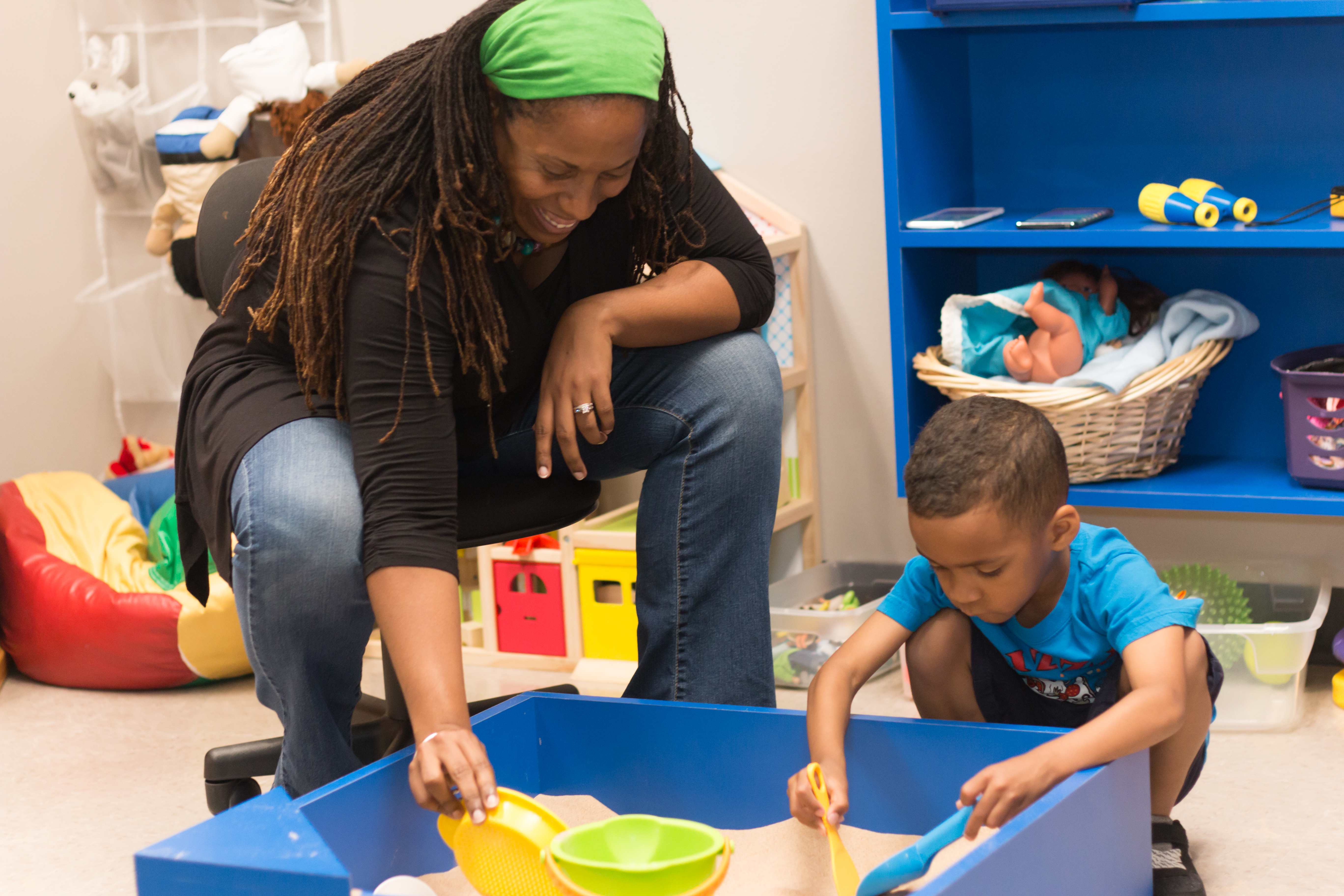Child-Parent Relationship Therapy is a play-based treatment program for young children presenting with behavioral, emotional, social, and attachment concerns. At the heart of CPRT is the premise that a secure parent-child relationship is the essential factor for children's well-being. In a supportive group environment, parents learn skills to respond more effectively to their children's emotional and behavioral concerns.
The goal of CPRT is to strengthen the quality of the parent-child attachment bond as a means of reducing child behavior problems and stress in the parent-child relationship. CPRT was developed for children ages 3 through 8, but has been adapted for use with toddlers and preadolescents.
In CPRT, parents are taught specific skills that focus on enhancing a secure attachment with their child and helping parents attune to and respond to their child's underlying needs to address symptoms. Parents also learn to effectively limit their child's misbehavior. In CPRT, parents implement the skills in weekly play sessions with their child and get feedback on their skills from a certified CPRT facilitator.

CPRT is typically administered in 10 weekly, 2 hour group sessions with 5-8 parents. CPRT includes three key components: learning skills, receiving feedback on skill practice and connecting with other parents for support. During sessions 1-3, parents learn skills, and prepare for their upcoming play sessions with their child. In weeks 4-10, parents practice their new skills with their child and the therapist provides feedback for parents in the small group format.
CPRT is a well-researched parenting model with numerous studies investigating its effectiveness. Overall research indicates that CPRT is effective in reducing children's behavior problems and decreasing parental stress (Bratton et al., 2010). Specifically, studies show CPRT's efficacy across a variety of issues and populations.
If you are interested in finding a CPRT group to join or would like more information about the program, please contact the Center for Play Therapy.


